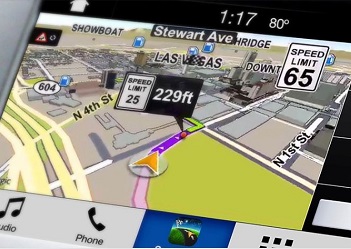
LAS VEGAS, Nevada, January 5, 2017 (ENS) – Ford and Toyota are forming a nonprofit organization to manage an open source software platform that will give consumers more options in how they connect and control their smartphone apps on the road. The two automakers announced the new SmartDeviceLink Consortium Tuesday at the first media day of the Consumer Electronics Show, or CES.
The consortium has attracted its first automaker members: Mazda, PSA Group, Fuji Heavy Industries Ltd. and Suzuki Motor Corporation.
Elektrobit, Luxoft, and Xevo joined as the first supplier members. Harman, Panasonic, Pioneer and QNX have signed Letters of Intent to join.

SmartDeviceLink is a standard set of protocols and messages that connect applications on a smartphone to a vehicle head unit. The core component is the software that automakers embed in their vehicle head units.
The open source SDL software allows smartphone app developers to seamlessly integrate their app functions with in-vehicle technology such as the vehicle display screen, steering wheel controls and voice recognition.
With this new level of integration, drivers can enjoy their favorite apps on the road in an enhanced, user-friendly way.
Livio, a Ford subsidiary, will manage the open source project and provide guidance to the SmartDeviceLink Consortium and its members.
SmartDeviceLink technology is based on Ford’s contribution of its AppLink™ software to the open source community in 2013. Ford AppLink software is currently available on more than five million vehicles globally.
Popular apps such as Pandora, Spotify, iHeartRadio, AccuWeather and others are available now to Ford AppLink users.
“Encouraging innovation is at the center of Ford’s decision to create SmartDeviceLink, and this consortium is a major step toward that goal,” said Doug VanDagens, global director, Ford Connected Vehicle and Services, and a board member of the consortium.
“Consumers will win with new, innovative app experiences from increased collaboration and developer engagement,” VanDagens said.
For instance, Toyota plans to commercialize a GPS vehicle tracking telematics system using SmartDeviceLink software around 2018.
Shigeki Tomoyama, president of Toyota’s Connected Company, said, “Connectivity between smartphones and the vehicle interface is one of the most important connected services. Using SmartDeviceLink, we can provide this service to our customers in a safe and secure manner. We are excited to collaborate with many auto manufacturers and suppliers who share our view.”
The open source platform gives automakers and suppliers a uniform standard for integrating apps. Developers can focus on creating the best experience for customers by integrating one linking solution for use by all participating automakers.
“We first set out to develop a way for Ford customers to access and control their favorite smartphone apps using voice commands,” said Don Butler, executive director, Ford Connected Vehicle and Services. “Now, seeing how our innovative software is serving new industry partners is very rewarding. We look forward to innovating together to keep pace with the needs and wants of consumers around the world.”
Industry-wide adoption of SmartDeviceLink is expected to give app developers a broad audience as their innovations could be applied to millions of vehicles worldwide.
Copyright Environment News Service (ENS) 2016. All rights reserved.
